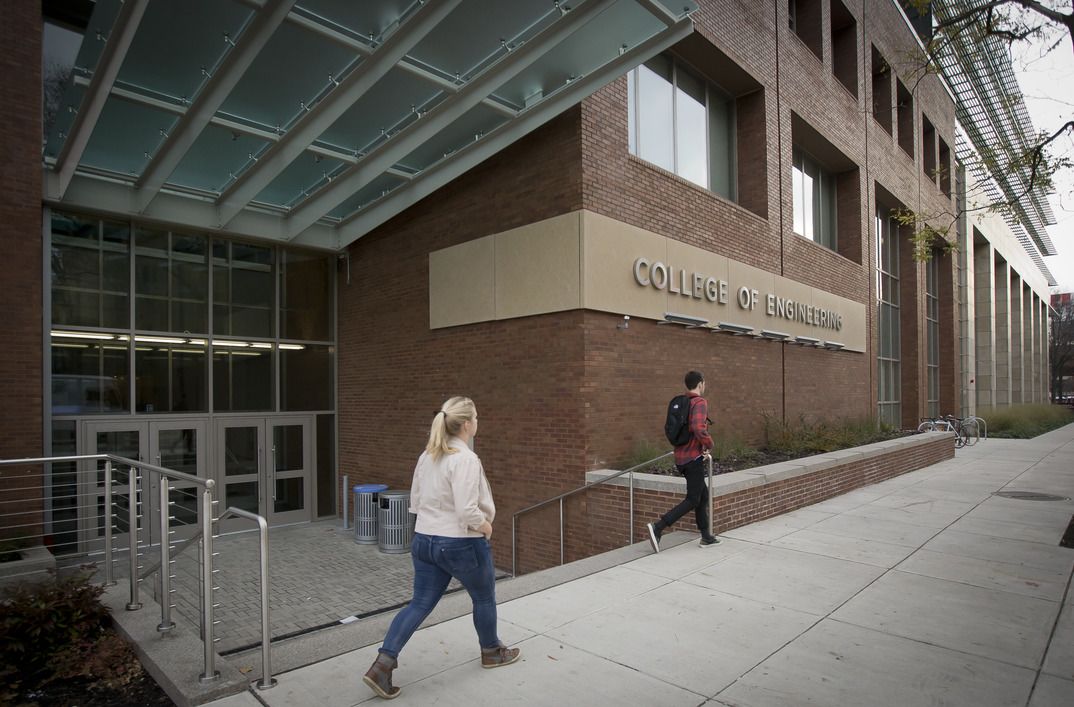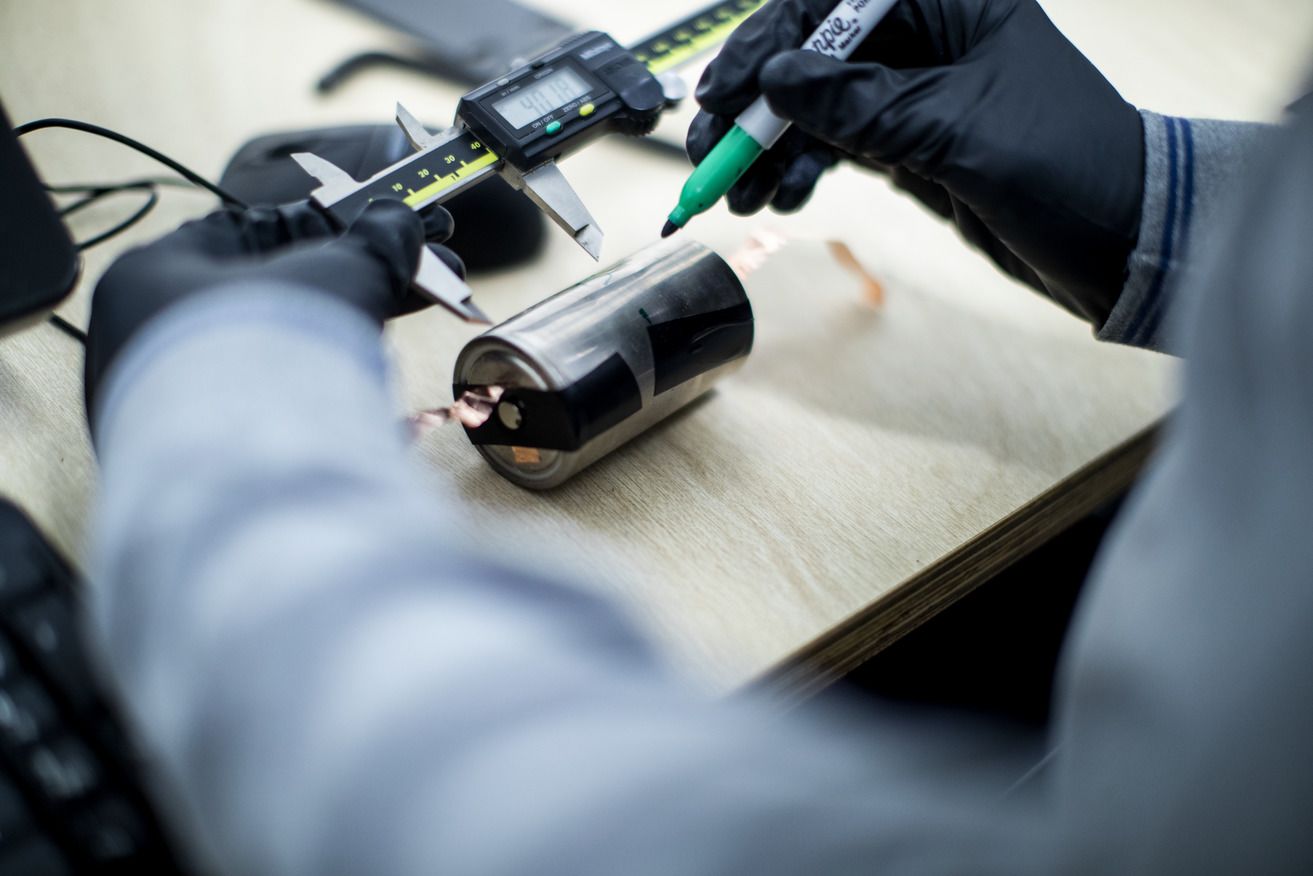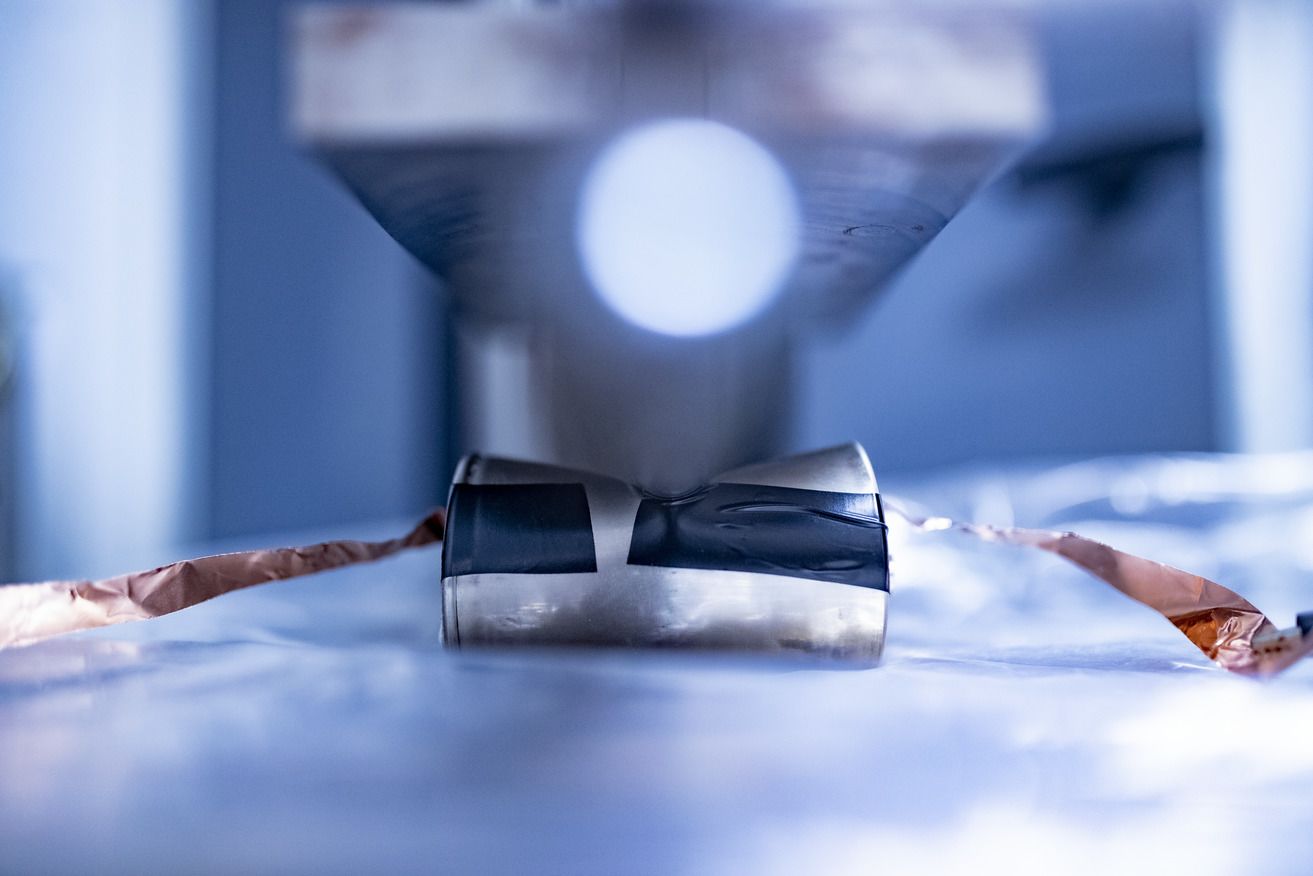Innovating for safer roadways
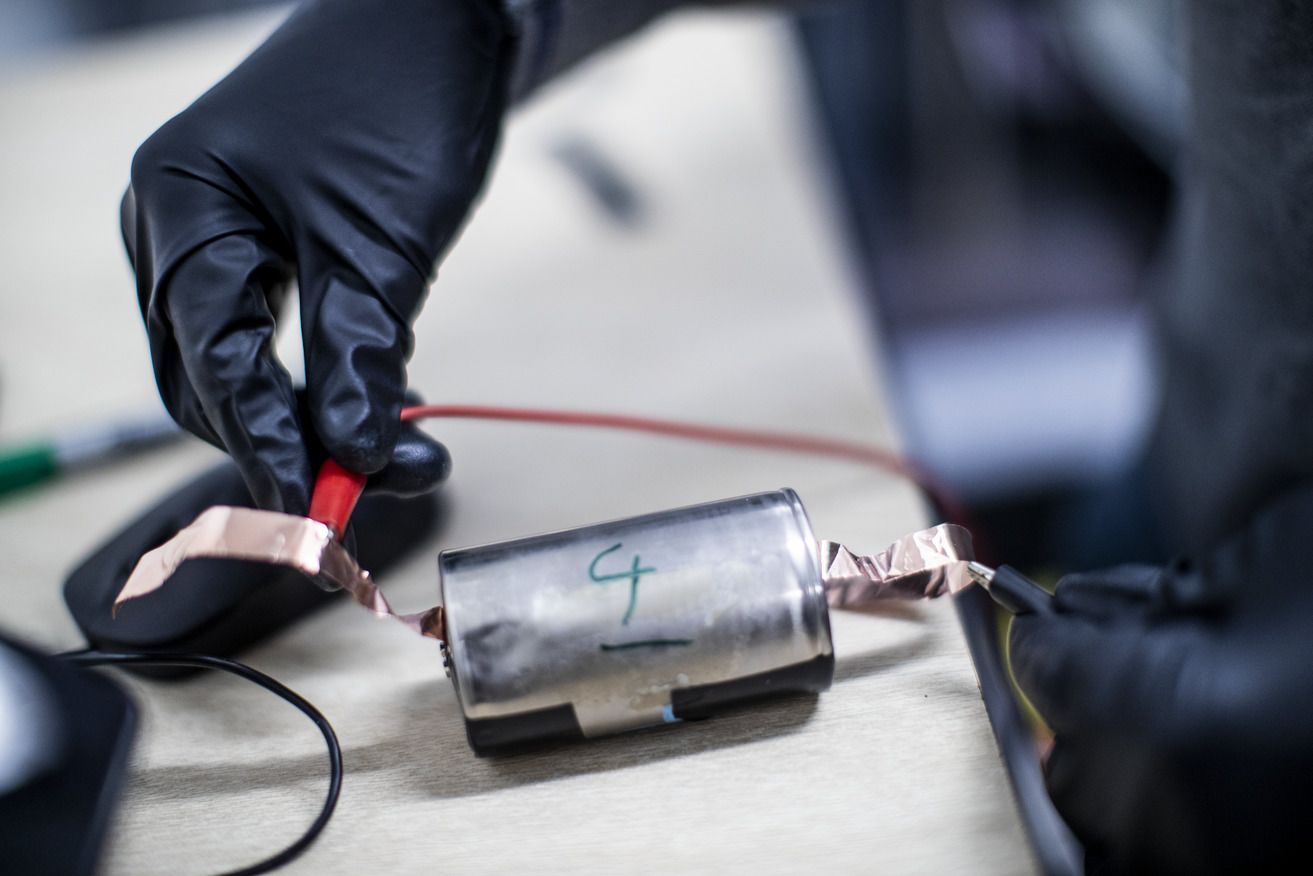
Elham Sahraei, professor of mechanical engineering at Temple University, is working to understand batteries in electric vehicles ...
and make the vehicles safer.
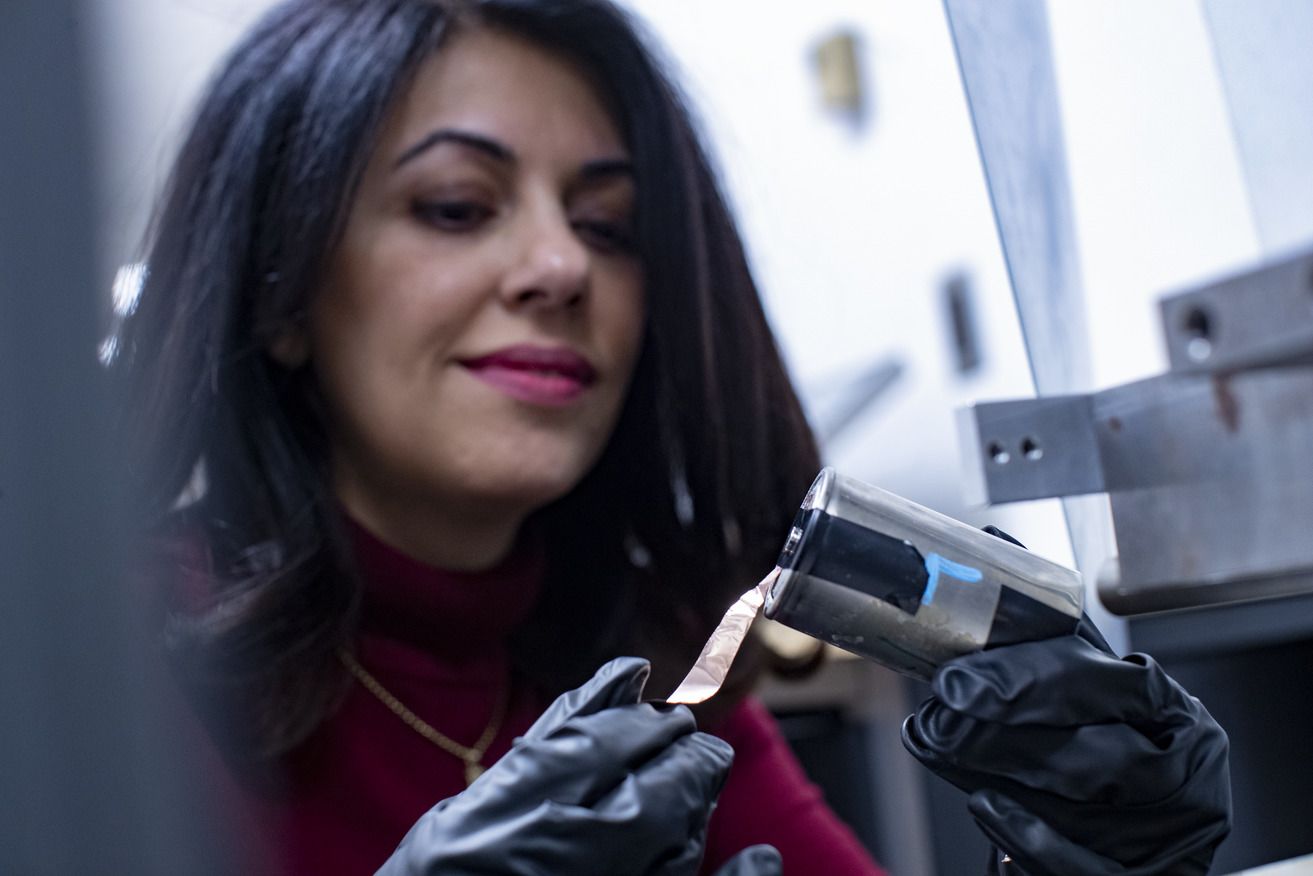
In May 2012, a Nissan GT-R was traveling at more than 110 miles per hour when it collided with an electronic, battery-operated taxi in Shenzhen, China.
The results were devastating. Three individuals lost their lives. Flames engulfed a nearby tree. The scene, which was akin to something out of a Hollywood blockbuster film, was prominently shared across news media, as it was the first reported electric vehicle crash fire.
This came just six months after the National Highway Traffic Safety Administration experienced its first electric vehicle fire following a crash test, and as result, Elham Sahraei’s research was suddenly in great demand.
“This was the first round of where people were getting more interested in our research,” said Sahraei, associate professor in the Department of Mechanical Engineering at Temple University.
In addition to her role as a faculty member in Temple’s College of Engineering, Sahraei serves as the director of the Electric Vehicle Safety Lab (EVSL) and the Center for Battery Safety (CBS) at Temple University. Together, the center and lab focus on researching the safety of lithium-ion batteries under extreme conditions, with the goal of enhancing safety for people everywhere relying on lithium-ion battery-powered vehicles and devices.
The work from both her lab and center may soon find itself an even bigger audience. Earlier this year, Sahraei launched Inovele LLC, a battery safety company that is presently incubating at Temple’s Innovation Nest, a space located at Temple’s Health Sciences Center that is dedicated to commercializing new innovations from Temple researchers and spurring student innovation. Inovele’s goal is to help companies design safer, lighter and more efficient battery products, specifically related to electric vehicles.
“To effectively allow the stakeholders to apply what we have learned in our labs, we needed a commercial entity to get engaged with companies and apply the experiments and modeling on their specific products. Otherwise, the knowledge we gain in the lab might just sit in publications because the companies don’t have the equipment or the workforce to apply it,” Sahraei said. “What we do at Inovele is help companies use our new technology and apply it to design safer, lighter, more cost-effective products. That is how we make sure that the knowledge that we gain from our work in the lab makes a tangible difference.”
The beginnings
Sahraei’s interest in both batteries and electric vehicles can be traced back to when she was completing her postdoctoral work as a research scientist at the Massachusetts Institute of Technology’s (MIT) Impact and Crashworthiness Lab. Before that, she was researching conventional vehicles safety and crashworthiness during her PhD at The George Washington University’s National Crash Analysis Center. Unbeknownst to Sahraei, her experiences there would also help spur what would eventually become Inovele.
“I was working on internal combustion engine vehicles at the time, and when I was graduating, I was looking at what would be my future. I ended up learning about Tesla, and this was in 2009 when electric cars were first coming to market,” Sahraei said. “And then I was thinking about all the research I have been doing on internal combustion engines. Because now, how does that apply to electric cars? They will have a different structure totally. They will have different components totally.”
Sahraei approached who would later become her postdoctoral supervisor at MIT, Tomasz Wierzbicki, while still a PhD student. Together, they started the research that formed the MIT Industrial Battery Consortium in 2011, and Sahraei continued co-directing the MIT Battery Consortium for nine years.
Then, in 2018, Sahraei joined Temple’s College of Engineering, where she would launch the EVSL shortly after her arrival. When Wierzbicki retired and the MIT Industrial Battery Consortium activities ended in 2023, Sahraei felt a need to continue the industry-university collaborative consortium style efforts by launching the CBS at Temple.
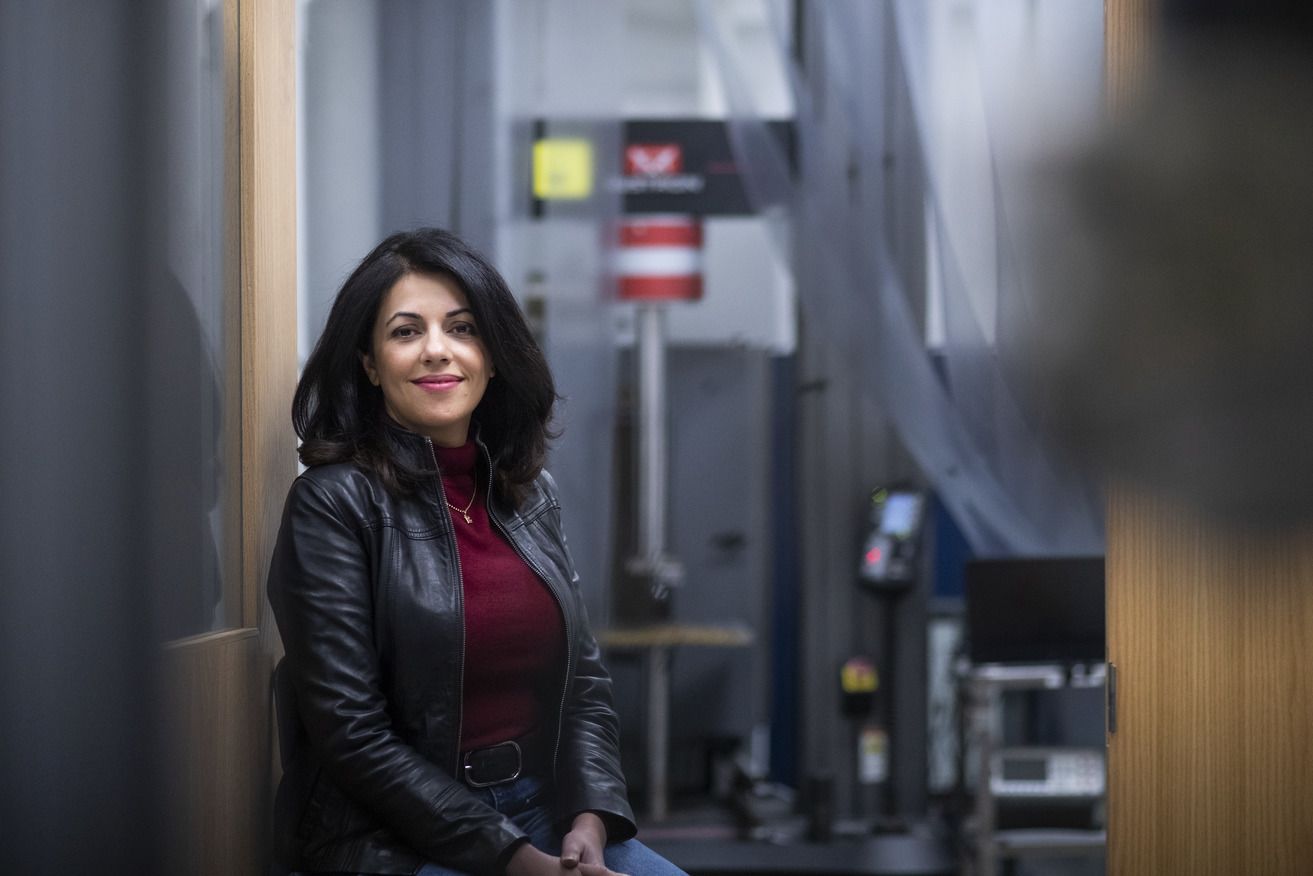
Contributing toward the greater good
Since that initial electric vehicle crash in 2012, there have been a handful of others. And on each occasion, there has been considerable media coverage, as fires started from an electric vehicle crash are much different than those started by an internal combustion engine vehicle.
Because the fires are not started by gasoline, they often take much longer to put out. The scene of the crash following an electric vehicle collision is a frightening sight, and it’s led to a misperception that these vehicles are more unsafe than those with traditional engines.
“The truth is that we know less about the behavior of lithium batteries in a crash than we know about the behavior in internal combustion engines,” Sahraei said.
Statistics also suggest that electric vehicles might actually be safer. According to the National Transportation Safety Board, there are about 25 fires for every 100,000 electric vehicles sold compared to about 1,530 fires for every 100,000 internal combustion engine vehicles. The caveat there, of course, is that there are far fewer electric vehicles than there are traditional internal combustion engine cars. Therefore, there are much fewer miles driven and accident data available to have final conclusions.
But that number is growing. In the third quarter of 2024, electric vehicle sales in the United States reached record highs, representing an 11% year-over-year increase. This makes the work of Sahraei and Inovele all the more important.
“The main reason we are doing this, and our main goal, is to contribute to safety of electric transportation,” Sahraei said. “We want to be able to help all these different car companies or any company that has batteries that can be subjected to mechanical deformation so that they can design their integration of the battery cell into the car in a way that it will be safer, more cost efficient and have better range. Because if we provide this service, this modeling technique and this testing technique for car companies, drone companies and even aerospace companies, then Inovele will have made a really strong contribution to a safer, greener, more sustainable future.”
“The main reason we are doing this, and our main goal, is to contribute to safety of electric transportation.”
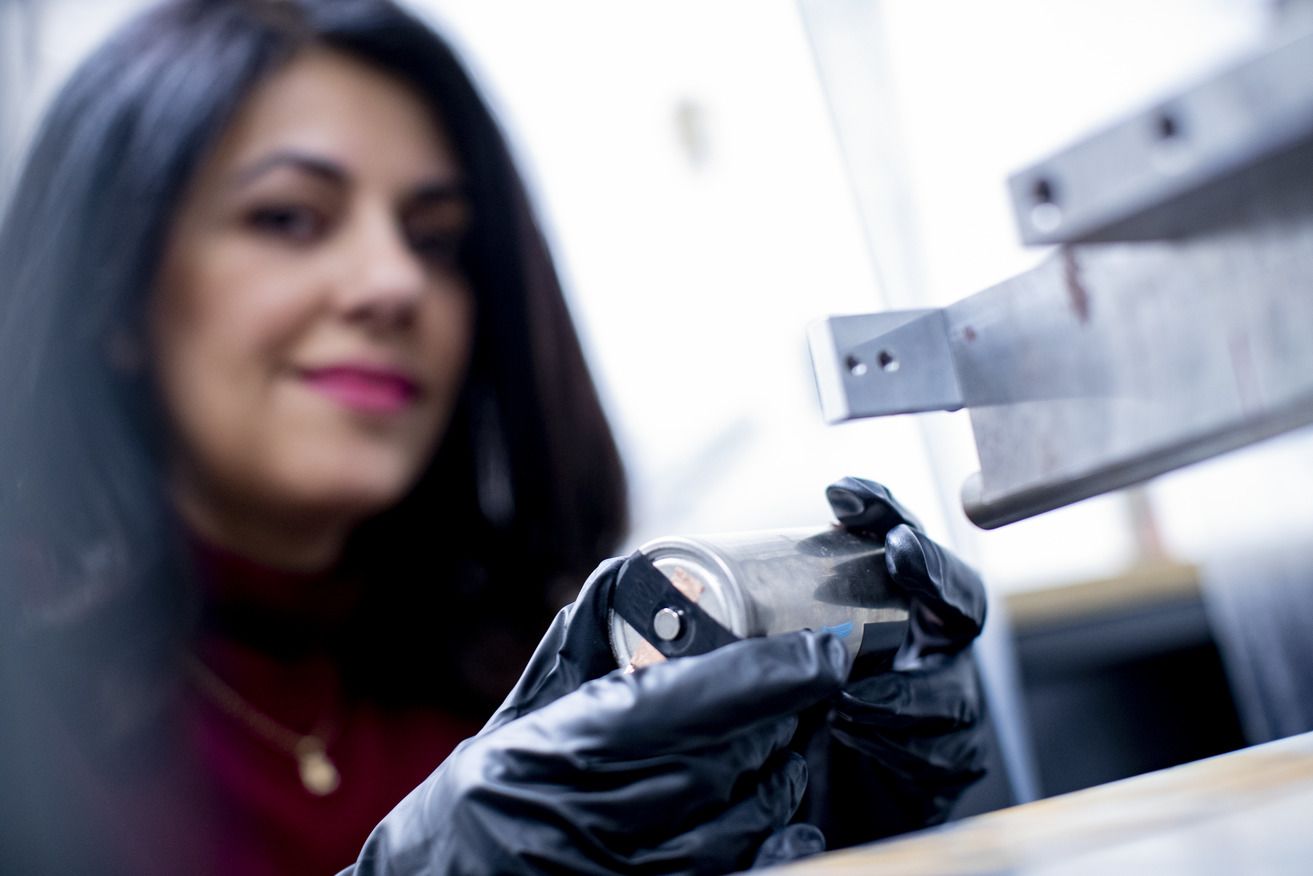
Catching the industry’s attention
It is still early, but the work of Inovele, EVSL and CBS is already grabbing the attention of several key stakeholders. A recent CBS workshop attracted 92 registered participants from 41 different companies and organizations from 14 countries. This included major original equipment manufacturers (OEMs), their suppliers, major software companies from the industry and multiple government agencies.
“There aren’t too many experts in this field, and even fewer experts in the United States, as the electric vehicle industry and battery industry are a little bit behind," Sahraei said. “But our plans are to catch up with manufacturing so that companies that want to make safe electric vehicles for the future will be better equipped to do that.”
It is not a goal that Sahraei will be able to accomplish alone.
If Inovele takes off as she hopes, it will have the potential to provide a significant economic boost. And, given the expected growth of the electric vehicle industry, there is no reason to think that Inovele cannot grow right alongside it.
“We think there will be a lot of opportunities for graduate students here at Temple to continue to pursue this work, but we also think the impact can go beyond that,” Sahraei said. “We want to see Pennsylvania really become known for this work, and we want to replace some of the jobs that are traditionally not there anymore. We believe Pennsylvania can become a leader in this field.”
Also read
Purposeful progress: Students and faculty in Temple University’s College of Engineering identify problems and pioneer solutions.
Taking flight: The Innovation Nest at Temple University advances new discoveries, accelerates start-up growth, and connects the Temple community to the surrounding entrepreneurial and investment ecosystem.
Become an Owl: Learn more about applying for one of our undergraduate, graduate or professional programs.
News and more: Find out about what's going on at Temple University.


